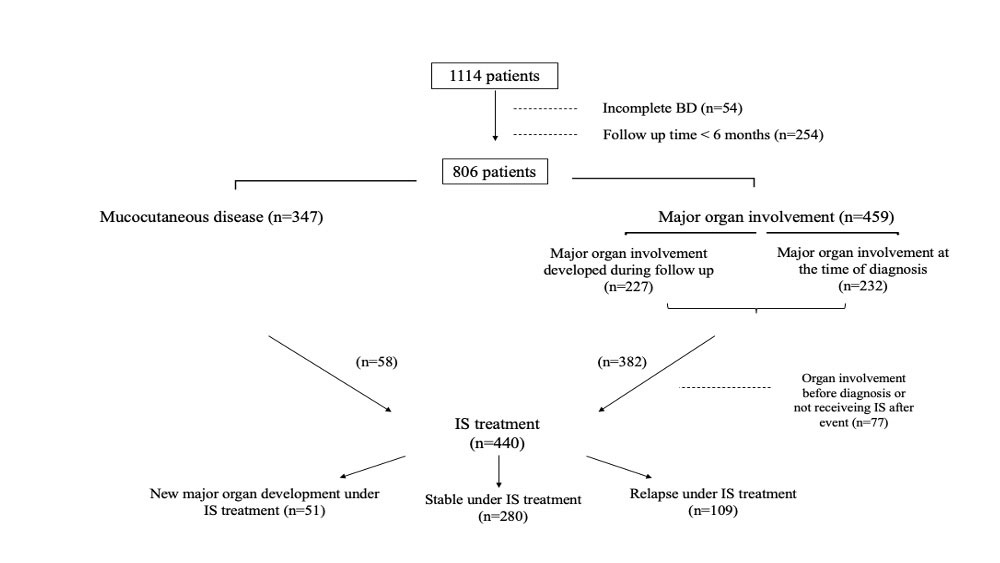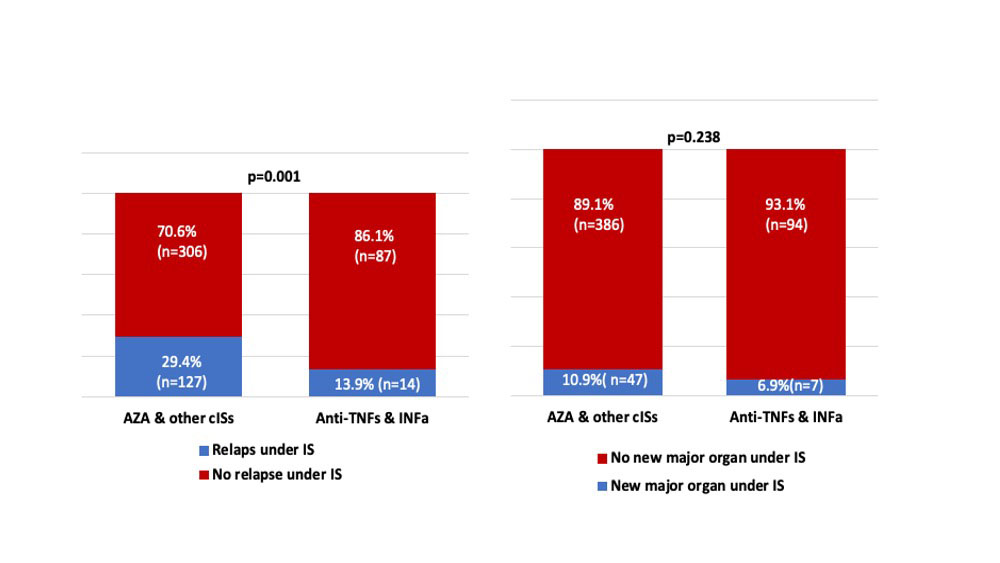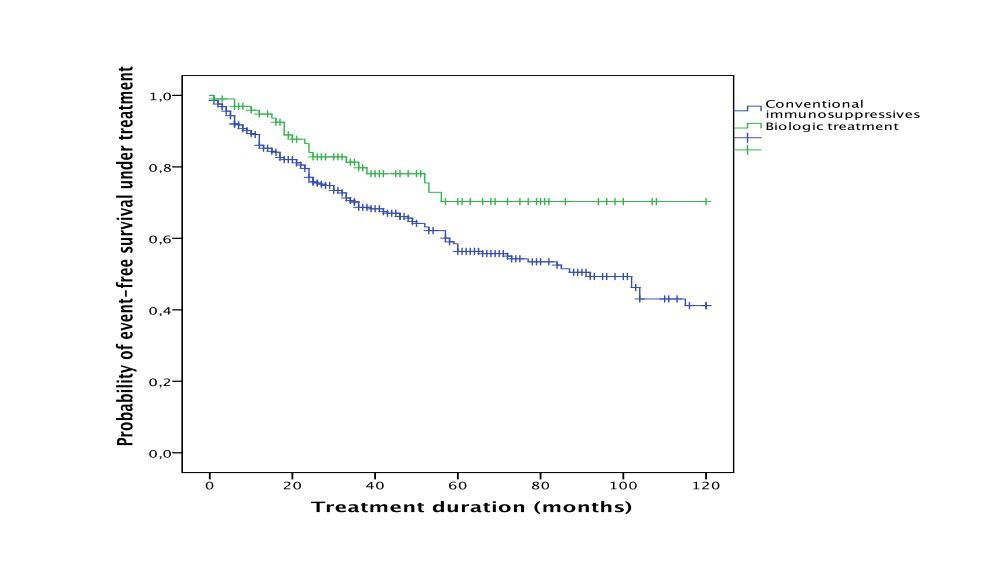Session Information
Date: Monday, November 14, 2022
Title: Abstracts: Vasculitis – Non-ANCA-Associated and Related Disorders II
Session Type: Abstract Session
Session Time: 3:00PM-4:30PM
Background/Purpose: Behçet’s disease (BD) is a chronic inflammatory disease affecting the eye, nervous system (CNS), vascular and gastrointestinal systems (GIS) as well as skin, mucosa, and joint involvement. Immunosuppressives (IS) are used for the treatment and prevention of major organ involvement in Behçet’s disease (BD). In this study, we aimed to investigate the rate of relapse and/or new major organ development in patients under ISs during follow-up and to compare different treatment protocols.
Methods: 1114 patients diagnosed with BD were reviewed retrospectively. Patients with a follow-up period less than 6 months were excluded. A total of 806 patients were included in the analysis. All data were acquired from files. Conventional IS (cIS) and biologic treatment courses were compared. Tumor necrosis factor (TNF) antagonists and interferon-alpha were included in biologics. ‘Events under IS’ were defined as relapse of the same organ and/or new major organ development of patients receiving IS.
Results: 806 patients were included in the analysis, of whom %56 were male. The median follow-up time was 68 (6-272) months, and the median age at diagnosis was 29 (10-65). Genital ulcers, erythema nodosum, arthritis/arthralgia were more common in women whereas papulopustular lesions, ocular involvement and vascular involvement were more common in men (p≤0.05 for all).
232 (50.5%) patients had major organ involvement at diagnosis, 227 (49.5%) patients developed new major organ involvement at follow-up. Major organ involvement developed earlier in males (p=0.012) and in patients with a first-degree relative history of BD (p=0.066). The frequencies of vascular, ocular, CNS, and GIS involvement were 29.8%, 33.5%, 9.7%, and 2%. The majority (86.8%) of 440 patients were treated with IS due to major organ involvement. ‘Events under IS’ developed 160 (36.4%) patients. 109 (68.1%) of these 160 patients had a relapse, 24 (15%) had a new major organ involvement, and 27 (16.9 %) had both (Figure 1).
‘Events under IS’ were more frequent under cISs (p=0.004). When events were analyzed separately as relapses and new major organ disease, relapses were more common under cISs compared to biologics (p=0.001). New major organ involvement under cIS vs biologics was also different, but it didn’t reach statistical significance (Figure 2).
The cumulative event-free survival was higher with biologics compared to cISs (p=0.014) (Figure 3).
Conclusion: Major organ involvement occurred in 57% of the patients. In addition, it was found that the course of the disease was more severe in male patients who were diagnosed at a younger age and had a history of BD in their 1st degree relatives. In 36% of the patients had a relapse/new major organ involvement under IS. Events under IS, were less common with biologics compared to cISs. These results suggest that earlier and more aggressive treatment may be an option in patients who had the highest risk for severe disease course.
To cite this abstract in AMA style:
Bozkurt T, Karabacak M, Karatas H, kutluğ ağaçkıran s, Ergun T, Direskeneli H, Alibaz-Oner F. Earlier and More Aggressive Treatment of Major Organ Involvement with Biologics May Prevent Relapses or Further New Organ Involvement in Behçet’s Disease [abstract]. Arthritis Rheumatol. 2022; 74 (suppl 9). https://acrabstracts.org/abstract/earlier-and-more-aggressive-treatment-of-major-organ-involvement-with-biologics-may-prevent-relapses-or-further-new-organ-involvement-in-behcets-disease/. Accessed .« Back to ACR Convergence 2022
ACR Meeting Abstracts - https://acrabstracts.org/abstract/earlier-and-more-aggressive-treatment-of-major-organ-involvement-with-biologics-may-prevent-relapses-or-further-new-organ-involvement-in-behcets-disease/



